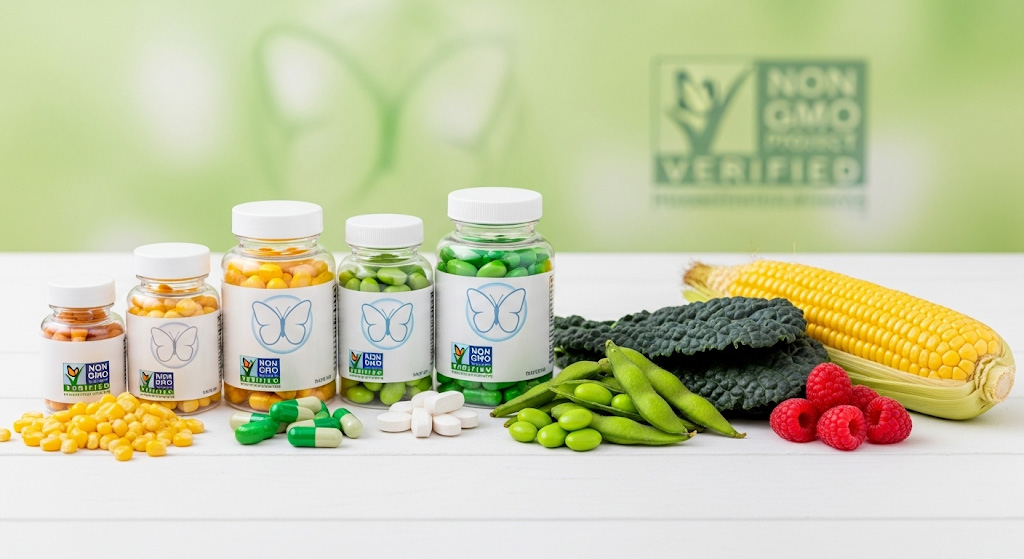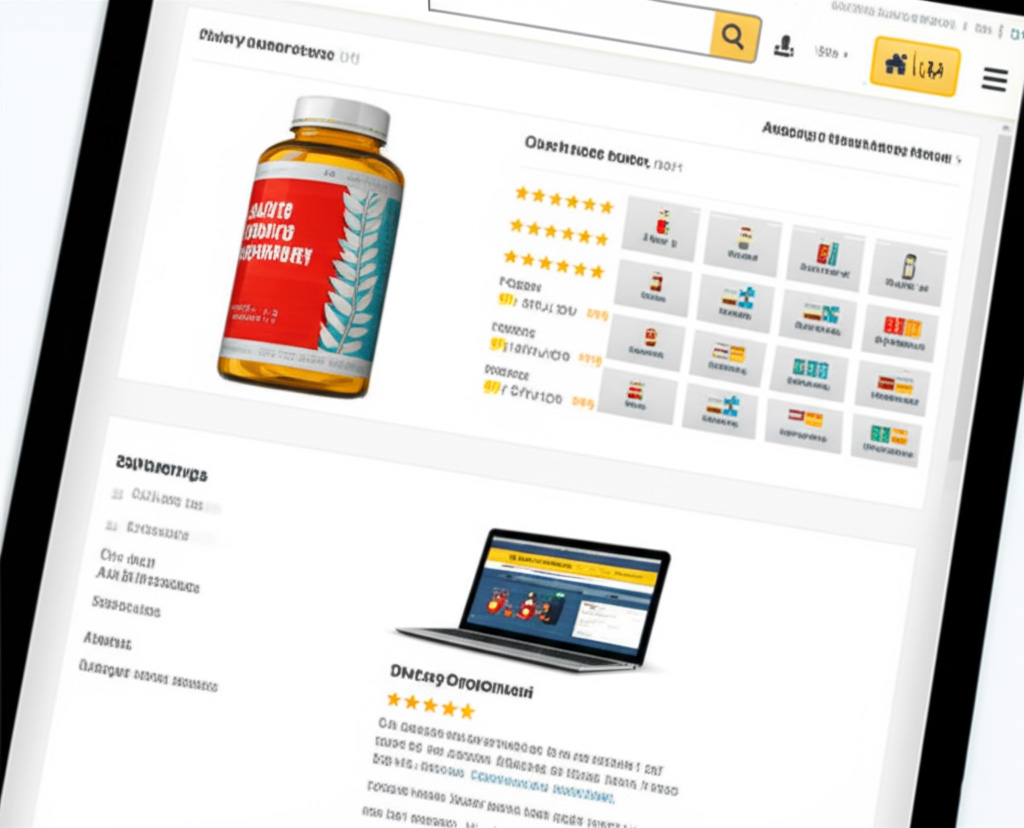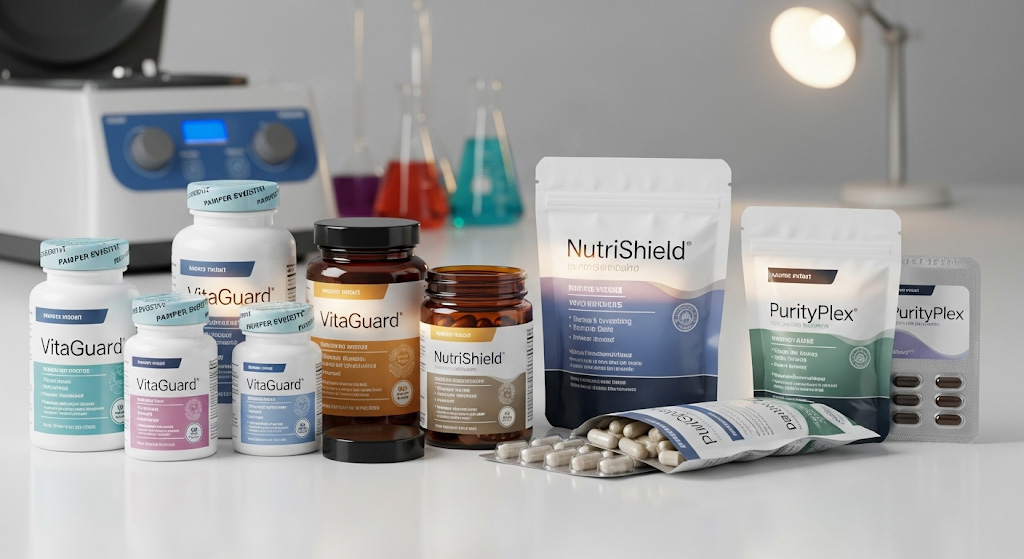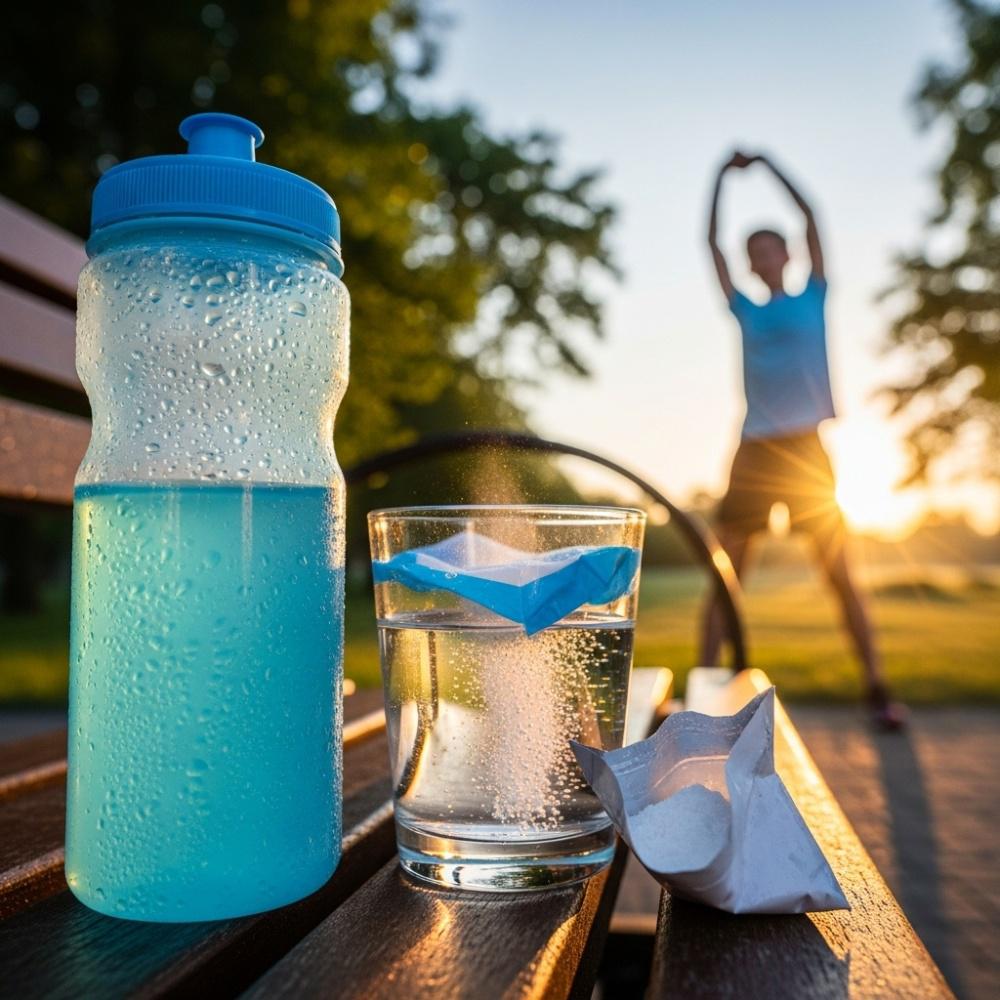Maintaining a robust and healthy heart is paramount for overall well-being and longevity. While a balanced, nutrient-rich diet, regular physical activity, maintaining a healthy weight, and avoiding smoking form the undeniable bedrock of cardiovascular health, many individuals proactively seek out additional support. This often leads them to explore heart health dietary supplements, a vast category of products designed to complement these foundational lifestyle habits. These supplements encompass a wide array of vitamins, minerals, botanicals, specialized fatty acids, and other bioactive compounds, all believed to play a role in promoting healthy blood pressure, optimizing cholesterol levels, supporting robust blood vessel function, and enhancing overall cardiac wellness.
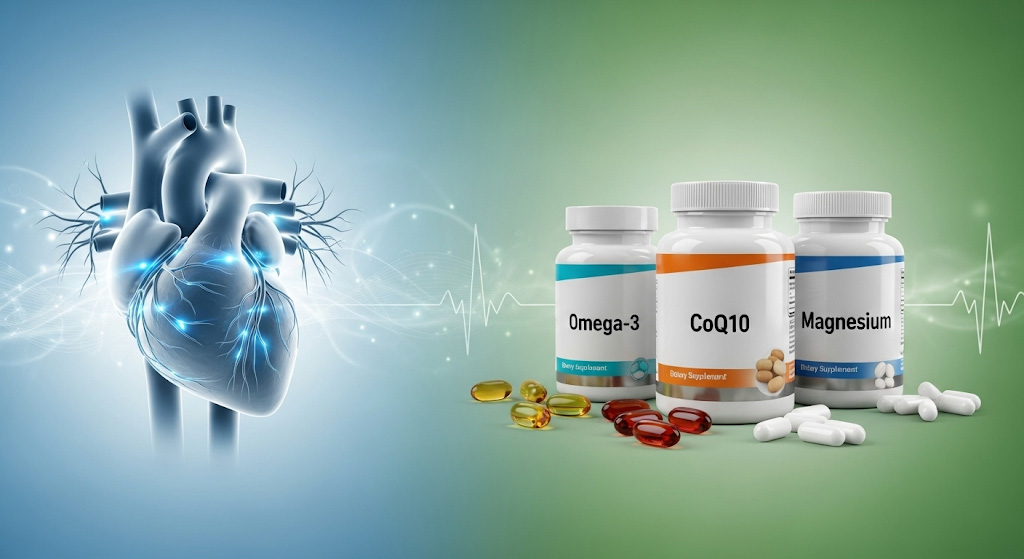
This comprehensive article will delve deeply into some of the most popular and extensively researched dietary supplements commonly utilized to support heart health. We'll explore their proposed mechanisms of action, review the scientific evidence behind their claims, discuss crucial considerations for their safe and effective use, and underscore the indispensable role of consulting healthcare professionals in making informed choices for your cardiovascular well-being.
Understanding the Landscape of Heart Health Supplements: Key Players and Their Mechanisms
The market for heart health supplements is dynamic and continually evolving. Here's a closer look at some of the most prominent players and the science behind their potential benefits:
-
Omega-3 Fatty Acids (Fish Oil, Krill Oil, Algal Oil): The Cornerstone of Heart Support
-
Mechanism of Action: Omega-3s, particularly EPA (eicosapentaenoic acid) and DHA (docosahexaenoic acid), are polyunsaturated fatty acids that are essential for human health but cannot be synthesized by the body. Their cardioprotective benefits are vast:
-
Triglyceride Reduction: They are highly effective at significantly lowering very high triglyceride levels, a known risk factor for heart disease.
-
Anti-inflammatory Effects: Omega-3s help reduce systemic inflammation, which is implicated in the development and progression of atherosclerosis (hardening of the arteries).
-
Blood Pressure Regulation: They can modestly lower blood pressure, especially in individuals with hypertension.
-
Anti-arrhythmic Properties: Some research suggests they may help stabilize heart rhythm and reduce the risk of arrhythmias.
-
Improved Endothelial Function: They contribute to the health and flexibility of blood vessel linings (endothelium).
-
-
Scientific Evidence: The body of evidence supporting omega-3s is extensive. Major health organizations, including the American Heart Association (AHA), recommend omega-3 supplementation for specific cardiovascular conditions, particularly for hypertriglyceridemia. Large observational studies and meta-analyses continue to affirm their role in reducing the risk of cardiovascular events.
-
Sources & Forms: Fish oil remains the most common source, derived from fatty fish like salmon, mackerel, and sardines. Krill oil is another option, often praised for its phospholipid-bound omega-3s, which some argue enhance absorption. For vegetarians and vegans, algal oil provides a direct plant-based source of DHA (and sometimes EPA).
-
Quality Matters: Look for third-party tested products to ensure purity (free from heavy metals like mercury, and PCBs), potency, and freshness (low oxidation).
-
-
Coenzyme Q10 (CoQ10): The Cellular Energy Spark Plug
-
Mechanism of Action: CoQ10 is a vitamin-like substance that acts as a potent antioxidant and plays a critical role in the electron transport chain, which is essential for cellular energy production (ATP synthesis) within the mitochondria. Heart muscle cells, being highly energy-dependent, have high concentrations of CoQ10.
-
Myocardial Energy Support: It helps provide the energy needed for efficient heart muscle contraction.
-
Antioxidant Protection: CoQ10 helps neutralize harmful free radicals, protecting cellular membranes and DNA from oxidative damage, a key factor in cardiovascular disease progression.
-
Blood Pressure Modulation: Some studies indicate it can contribute to modest reductions in blood pressure, potentially by improving endothelial function.
-
Statin-Induced Depletion: Statin medications, commonly prescribed for cholesterol reduction, are known to inhibit the body's natural CoQ10 production. Supplementation is often considered to alleviate statin-associated muscle pain (myalgia) and other side effects, though the evidence for preventing cardiovascular events in statin users is less definitive.
-
-
Scientific Evidence: Research supports CoQ10's role in improving symptoms and quality of life for individuals with heart failure. Its efficacy in reducing statin-induced myalgia is also a common area of discussion.
-
Forms: CoQ10 is available in two forms: ubiquinone and ubiquinol. Ubiquinol is the active, antioxidant form and is generally considered more bioavailable, especially for older adults or those with impaired absorption.
-
-
Red Yeast Rice: Nature's Statin-Like Compound (Use with Caution!)
-
Mechanism of Action: Red yeast rice (Monascus purpureus) is a fermented rice product that contains naturally occurring compounds called monacolins. Most notably, monacolin K is chemically identical to lovastatin, a prescription statin drug. This compound inhibits HMG-CoA reductase, a key enzyme in cholesterol synthesis in the liver, leading to reduced production of LDL ("bad") cholesterol.
-
Scientific Evidence: Numerous clinical trials have demonstrated that certain standardized red yeast rice preparations can effectively lower LDL cholesterol levels.
-
Critical Considerations & Risks: Due to its active ingredient being a pharmaceutical compound, red yeast rice carries similar potential side effects to prescription statins, including muscle pain (myopathy), liver damage, and kidney problems. The purity and potency of red yeast rice supplements are highly variable, with some products containing little active ingredient and others containing contaminants like citrinin, which is toxic to the kidneys. Therefore, its use requires strict medical supervision, as if it were a prescription drug. It is not a "natural" alternative to statins without risks.
-
-
Garlic (Allium sativum): The Ancient Heart Ally
-
Mechanism of Action: Garlic's cardiovascular benefits are attributed primarily to its sulfur-containing compounds, especially allicin, which is formed when garlic is crushed or chopped. These compounds may:
-
Modestly Lower Blood Pressure: By promoting vasodilation (widening of blood vessels).
-
Slightly Reduce Cholesterol: Specifically LDL cholesterol.
-
Anti-platelet Effects: Reducing blood platelet aggregation, which can thin the blood and potentially lower the risk of clots.
-
Antioxidant Properties: Protecting blood vessels from oxidative damage.
-
-
Scientific Evidence: While some research suggests modest positive effects of garlic supplementation on blood pressure and cholesterol, the results can be inconsistent across studies, partly due to the variability in allicin content and bioavailability in different preparations.
-
Forms: Available in various forms, including fresh garlic, aged garlic extract (which converts unstable allicin into more stable compounds), garlic powder, and oil. Aged garlic extract is often favored in research due to its stability and consistent compound profile.
-
-
Niacin (Vitamin B3): Cholesterol Management with a Catch
-
Mechanism of Action: Niacin, or Vitamin B3, can significantly impact lipid profiles. At higher, pharmacological doses (often above 1,000 mg/day), it can effectively:
-
Lower LDL ("bad") Cholesterol and Triglycerides.
-
Raise HDL ("good") Cholesterol more effectively than many other agents.
-
-
Scientific Evidence: Prescription-strength niacin has a long history of use in lipid management. However, its use has become less common as studies have shown that despite improving lipid numbers, it doesn't always translate to a reduction in major cardiovascular events when added to statin therapy, and it carries significant side effects.
-
Critical Considerations & Risks: Over-the-counter niacin supplements are usually lower dose and less effective for lipid modification. High doses of niacin can cause significant side effects, most notably the "niacin flush" (redness, itching, burning sensation of the skin), as well as liver damage, increased blood sugar, and gout. High-dose niacin should only be used under strict medical supervision and monitoring.
-
-
Plant Sterols and Stanols: Blocking Cholesterol Absorption
-
Mechanism of Action: Plant sterols and stanols are compounds structurally similar to cholesterol, found naturally in small amounts in plant foods (grains, nuts, seeds, vegetable oils). When consumed, they compete with cholesterol for absorption in the small intestine. This competition reduces the amount of dietary and biliary cholesterol absorbed into the bloodstream.
-
Scientific Evidence: Numerous clinical studies consistently demonstrate that consuming 2 grams per day of plant sterols or stanols can effectively lower LDL cholesterol levels by 5-15%, often without affecting HDL cholesterol.
-
Sources: They are often added to fortified foods like margarines, yogurts, and orange juice, and are also available in concentrated supplement forms.
-
-
Magnesium: The Mineral for Heart Rhythm and Pressure
-
Mechanism of Action: Magnesium is an essential mineral involved in over 300 enzymatic reactions in the body, many of which are critical for cardiovascular health.
-
Blood Pressure Regulation: It helps relax blood vessels, contributing to healthy blood pressure levels.
-
Heart Rhythm: Magnesium is vital for maintaining a stable heart rhythm and proper nerve impulse transmission.
-
Muscle Function: It supports healthy heart muscle contraction and relaxation.
-
Glucose Metabolism: It plays a role in insulin sensitivity, which indirectly impacts cardiovascular health.
-
-
Scientific Evidence: Epidemiological studies often show an association between higher dietary magnesium intake and a lower risk of cardiovascular disease, including hypertension and stroke. Supplementation may be beneficial for individuals with magnesium deficiency or those struggling to control blood pressure.
-
Forms: Various forms exist, with varying bioavailability. Magnesium citrate, glycinate, and taurate are generally well-absorbed.
-
-
Fiber Supplements (Soluble Fiber): The Cholesterol Sponge
-
Mechanism of Action: Soluble fiber (found in oats, barley, psyllium, beans, apples) forms a gel-like substance in the digestive tract. This gel can bind to cholesterol and bile acids (which are made from cholesterol) in the small intestine, preventing their reabsorption and promoting their excretion from the body. This process forces the liver to use more cholesterol to produce new bile acids, thereby lowering blood cholesterol levels, particularly LDL.
-
Scientific Evidence: Numerous studies strongly support the cholesterol-lowering effects of soluble fiber. For example, beta-glucan (from oats and barley) and psyllium are well-documented for their efficacy in reducing LDL cholesterol.
-
Sources: Psyllium husk, oat beta-glucan, glucomannan, and other soluble fiber sources are available in supplement form.
-
-
Folic Acid (Vitamin B9) and Other B Vitamins (B6, B12): The Homocysteine Link
-
Mechanism of Action: Folic acid, along with vitamins B6 and B12, plays a crucial role in the metabolism of homocysteine, an amino acid. Elevated levels of homocysteine in the blood have been identified as a potential risk factor for cardiovascular disease. These B vitamins help convert homocysteine into other beneficial compounds, thus lowering its levels.
-
Scientific Evidence: While studies have shown that B vitamin supplementation can effectively lower homocysteine levels, large-scale clinical trials have not consistently demonstrated that lowering homocysteine directly translates to a reduced risk of cardiovascular events (like heart attacks or strokes) in the general population. However, maintaining adequate B vitamin levels is still important for overall health and specific populations (e.g., pregnant women for folic acid).
-
Crucial Considerations and Professional Guidance for Heart Health Supplements
While the potential benefits of heart health supplements are compelling, their use demands a cautious, informed, and personalized approach.
-
Consult Your Healthcare Provider is Paramount: Before incorporating any new dietary supplement for heart health into your regimen, it is absolutely essential to have a detailed discussion with your doctor, cardiologist, or a registered dietitian. This is non-negotiable, especially if you:
-
Have pre-existing heart conditions (e.g., heart failure, arrhythmias, history of heart attack/stroke).
-
Are currently taking any medications (particularly blood thinners like warfarin or aspirin, statin drugs, blood pressure medications, or diabetes medications). Supplements can interact dangerously with prescription drugs, altering their efficacy or increasing side effects.
-
Have other underlying health conditions (e.g., kidney disease, liver disease, diabetes).
-
Are pregnant or breastfeeding.
-
Are undergoing surgery.
-
-
Supplements Are Not a Replacement for Medical Treatment: It is critical to understand that dietary supplements are intended to complement a healthy lifestyle and medical treatments, not to replace them. They are not designed to diagnose, treat, cure, or prevent any disease. Never discontinue prescribed medications or ignore medical advice in favor of supplements.
-
Quality, Purity, and Potency are Non-Negotiable: The supplement industry is not as strictly regulated as the pharmaceutical industry. The quality, purity, and actual potency of supplements can vary dramatically between brands and even between batches of the same product. Always look for supplements that have been independently verified through third-party testing by reputable organizations such as:
-
NSF International
-
USP Verified (U.S. Pharmacopeia)
-
ConsumerLab.com These certifications provide assurance that the product contains what its label claims, in the correct amount, and is free from harmful contaminants (like heavy metals, pesticides, and microbial impurities).
-
-
Adhere to Recommended Dosage: More is not always better. Follow the recommended dosage on the product label precisely, or as specifically advised by your healthcare provider. Exceeding recommended doses can increase the risk of side effects, some of which can be serious.
-
Understand Potential Side Effects and Interactions: Every supplement has potential side effects. For example:
-
Omega-3s and Garlic: Can have blood-thinning effects, increasing bleeding risk if combined with anticoagulant medications or before surgery.
-
Red Yeast Rice: Carries similar risks of muscle pain and liver damage as statin drugs.
-
Niacin: Can cause flushing, liver toxicity, and affect blood sugar. Discuss all potential interactions and side effects with your doctor or pharmacist.
-
-
Long-Term Safety and Efficacy: The long-term safety and efficacy of some heart health supplements, particularly certain herbal blends or newer compounds, may not be fully established through rigorous, long-term human clinical trials. Discuss the appropriate duration of supplementation with your healthcare provider.
-
Embrace a Holistic Heart-Healthy Lifestyle: Supplements are just one small piece of the comprehensive puzzle of cardiovascular health. The most powerful interventions remain:
-
A balanced, nutrient-dense diet: Emphasizing fruits, vegetables, whole grains, lean proteins, and healthy fats (e.g., Mediterranean diet).
-
Regular physical activity: Aiming for at least 150 minutes of moderate-intensity exercise per week.
-
Maintaining a healthy weight: Reducing strain on the heart.
-
Effective stress management techniques: Yoga, meditation, mindfulness.
-
Adequate sleep.
-
Avoiding smoking and excessive alcohol consumption. Supplements should enhance, not replace, these fundamental lifestyle commitments.
-
Conclusion
Heart health dietary supplements can indeed serve as a valuable complement to a proactive and comprehensive strategy for nurturing cardiovascular well-being. Options such as well-sourced omega-3 fatty acids, CoQ10, plant sterols, and magnesium have demonstrated promising roles in supporting various facets of heart function and lipid management. However, the decision to incorporate these into your routine must be made with utmost caution, a strong commitment to choosing only high-quality, third-party tested products, and, most critically, under the direct guidance of your healthcare provider. Supplements are powerful agents that can interact with medications and impact existing conditions; they are never a substitute for prescribed medical treatments or fundamental healthy lifestyle practices. By adopting a truly holistic approach that integrates medical advice, a heart-healthy lifestyle, and carefully selected, high-quality supplements, you can empower yourself to support your cardiovascular system for years to come.
Authoritative References:
-
National Institutes of Health (NIH) - Office of Dietary Supplements (ODS): Provides comprehensive, evidence-based fact sheets on various vitamins, minerals, and other dietary supplement ingredients.
-
Omega-3 Fatty Acids: https://ods.od.nih.gov/factsheets/Omega3FattyAcids-Consumer/
-
Coenzyme Q10: https://ods.od.nih.gov/factsheets/CoenzymeQ10-Consumer/
-
Magnesium: https://ods.od.nih.gov/factsheets/Magnesium-Consumer/
-
Folate (Folic Acid): https://ods.od.nih.gov/factsheets/Folate-Consumer/
-
-
American Heart Association (AHA): A leading authority on cardiovascular health, offering evidence-based recommendations and educational resources.
-
Fish and Omega-3 Fatty Acids: https://www.heart.org/en/healthy-living/healthy-eating/eat-smart/fats/fish-and-omega-3-fatty-acids
-
Healthy Eating: https://www.heart.org/en/healthy-living/healthy-eating
-
Disclaimer: This article is for informational and educational purposes only and does not constitute medical advice. It is not intended to diagnose, treat, cure, or prevent any disease. Always consult with a qualified healthcare professional before making any decisions related to your health or before starting any new dietary supplement, especially if you have existing medical conditions or are taking prescription medications.


